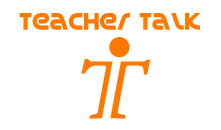National Cyber Security Awareness Week and Cybersafety Summit - 30 May
Helping protect Australians online.
Read the latest Media Release
"As part of the Awareness Week, Senator Conroy today announced the development of a cybersafety guide to help protect children online, including while using social networking sites."
"Senator Conroy also announced a revised Budd:e Cyber Security Education Package for Australian primary and secondary school students. Budd:e is a key component of the Government's cyber security awareness initiative that helps Australian children adopt
safe and secure online practices and behaviours".
Budd:e is a fun and engaging learning experience where kids play games for points, learn important cybersecurity and safety behaviours, while building their very own personalised robot or cyborg.
Budd:e is a fun and engaging learning experience where kids play games for points, learn important cybersecurity and safety behaviours, while building their very own personalised robot or cyborg.
Budd:e (Primary) contains eight online learning activities, plus one offline activity. View "A Guide to the Primary Module." Budd:e primary - education module
Budd:e Secondary Budd:e for secondary schools explores advanced cybersecurity topics, including: creating content, file sharing, pop-ups, privacy, sharing, scams, spam,spyware, malware, phishing, online transactions and computer viruses. Budd:e secondary cybersecurity education module
Budd:e Secondary Budd:e for secondary schools explores advanced cybersecurity topics, including: creating content, file sharing, pop-ups, privacy, sharing, scams, spam,spyware, malware, phishing, online transactions and computer viruses. Budd:e secondary cybersecurity education module
For information on 2011 National Cyber Security Awareness Week events and activities, or a copy of Protecting Yourself Online - What Everyone Needs to Know, visit the Stay Smart Online website .
* Simple Tips to Stay Safe:
* Simple Tips to Stay Safe:






